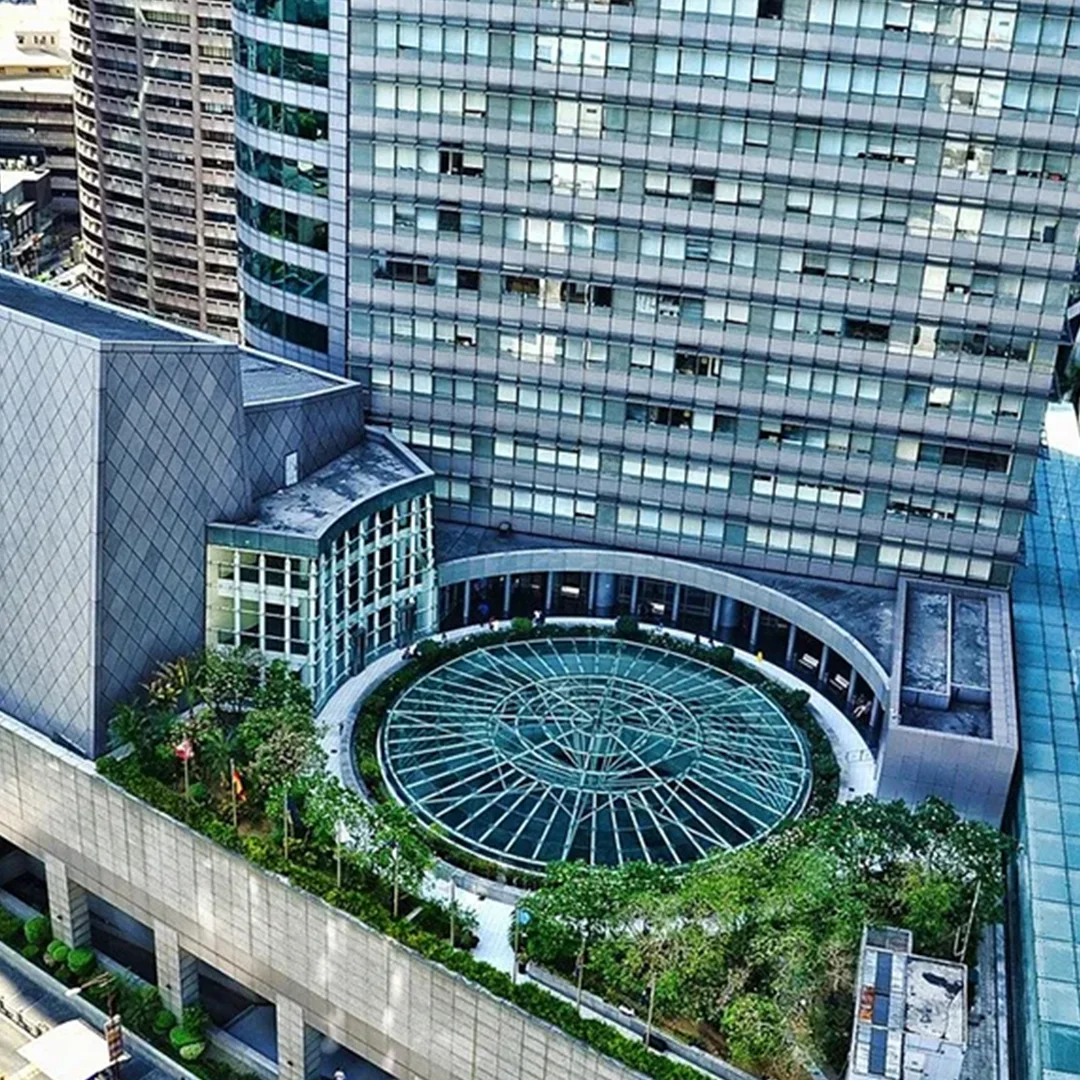Home › Doing business in Makati
Learn more about Doing Business in Makati
Makati is the financial capital of the Philippines, home to many of the country’s largest corporations and multinational companies. Known for its high-rise buildings, upscale shopping malls, and vibrant commercial districts, Makati is the hub for business, finance, and trade in the Philippines. As the heart of Metro Manila, it offers numerous opportunities for both local and foreign investments.
| Total Population 629,616 people | GDP Contribution 20% of Metro Manila's GDP | Average GDP Growth 6-7% per year |
| Business Ecosystem Over 50,000 registered businesses | Average Salary PHP 500,000/year | Average Office Rent PHP 1,200/m²/month (CBD) |
Economic Landscape of Makati
1. Key Economic Indicators
Makati contributes about 20% of Metro Manila’s total GDP, making it the largest contributor in the region. With an average GDP growth of 6-7% per year, Makati’s economy is driven by its strong financial services, real estate, and retail sectors. The city’s role as the nation’s economic center, housing numerous local and multinational companies, has solidified its position as a prime destination for business investments.
2. Major Industries in Makati
Financial Services:Makati is home to the Makati Central Business District (CBD), which houses several local and international banks, insurance companies, and financial institutions. As the Philippine financial capital, Makati hosts the Philippine Stock Exchange (PSE) and the Makati Business Club, both integral to the country’s financial ecosystem.
Real Estate and Construction: Makati’s skyline is dominated by office towers, luxury residences, and mixed-use developments. The city’s real estate market continues to thrive, with significant investments in both commercial and residential properties. Real estate firms and property developers have seen consistent growth in the area.
Retail and E-commerce: Makati’s retail landscape is vibrant, with numerous high-end malls such as Greenbelt and Glorietta attracting both local consumers and international brands. E-commerce has also seen rapid growth in Makati, driven by the rise of online shopping platforms and the increasing use of digital payments.
Business Process Outsourcing (BPO): While other areas of Metro Manila have emerged as BPO hubs, Makati remains one of the top destinations for outsourcing operations. Its infrastructure and access to skilled labor make it attractive to global companies outsourcing various services.
Legal Environment for Businesses
1. Company Registration Process
Government Support for Businesses: Makati City is known for its business-friendly environment and support from local authorities. The Makati City Government offers various incentives to businesses, including tax breaks, business development programs, and the establishment of economic zones. Additionally, the Philippine Economic Zone Authority (PEZA) provides further incentives, such as tax holidays and other benefits for businesses operating within designated areas. Learn more about our Company Registration services.
2. Corporate Compliance Requirements
Businesses in Makati must comply with national labor laws, including the Labor Code of the Philippines, which governs wages, working conditions, and employee benefits. Compliance with tax obligations, such as filing tax returns with the Bureau of Internal Revenue (BIR), is mandatory. Makati businesses are also required to contribute to the Social Security System (SSS), PhilHealth, and Pag-IBIG programs for employee benefits. Environmental regulations set by the Department of Environment and Natural Resources (DENR) must also be followed, particularly for businesses involved in manufacturing or resource-intensive operations. Explore our Accounting and Tax services for comprehensive support.
3. Taxation Overview
Philippines’ taxation system includes several key taxes for businesses:
| ➤ Corporate Income Tax (CIT): 25% for large corporations. A reduced rate of 20% applies to businesses with a net taxable income below PHP 5 million and total assets not exceeding PHP 100 million (excluding land). |
| ➤ Value-Added Tax (VAT): 12% applies to the sale of goods and services, including imports, for businesses with annual gross sales over PHP 3 million. Small businesses under this threshold may opt for a 3% percentage tax instead. |
| ➤ Local Business Tax (LBT): Collected by the city of Makati, the rate varies depending on the nature of the business. For instance, retailers are taxed at 0.75% of gross receipts, service providers typically range from 0.5% to 0.75%, and entertainment venues such as bars and clubs are taxed at 3%. Certain exemptions apply for businesses with annual gross receipts under PHP 50,000. |
| ➤ Capital Gains Tax (CGT): 6% applies to the sale of real estate, calculated on the higher of the selling price or fair market value. A 15% rate applies to gains from the sale of shares not traded on the stock exchange. Exemptions may apply, particularly for the sale of a principal residence. |




